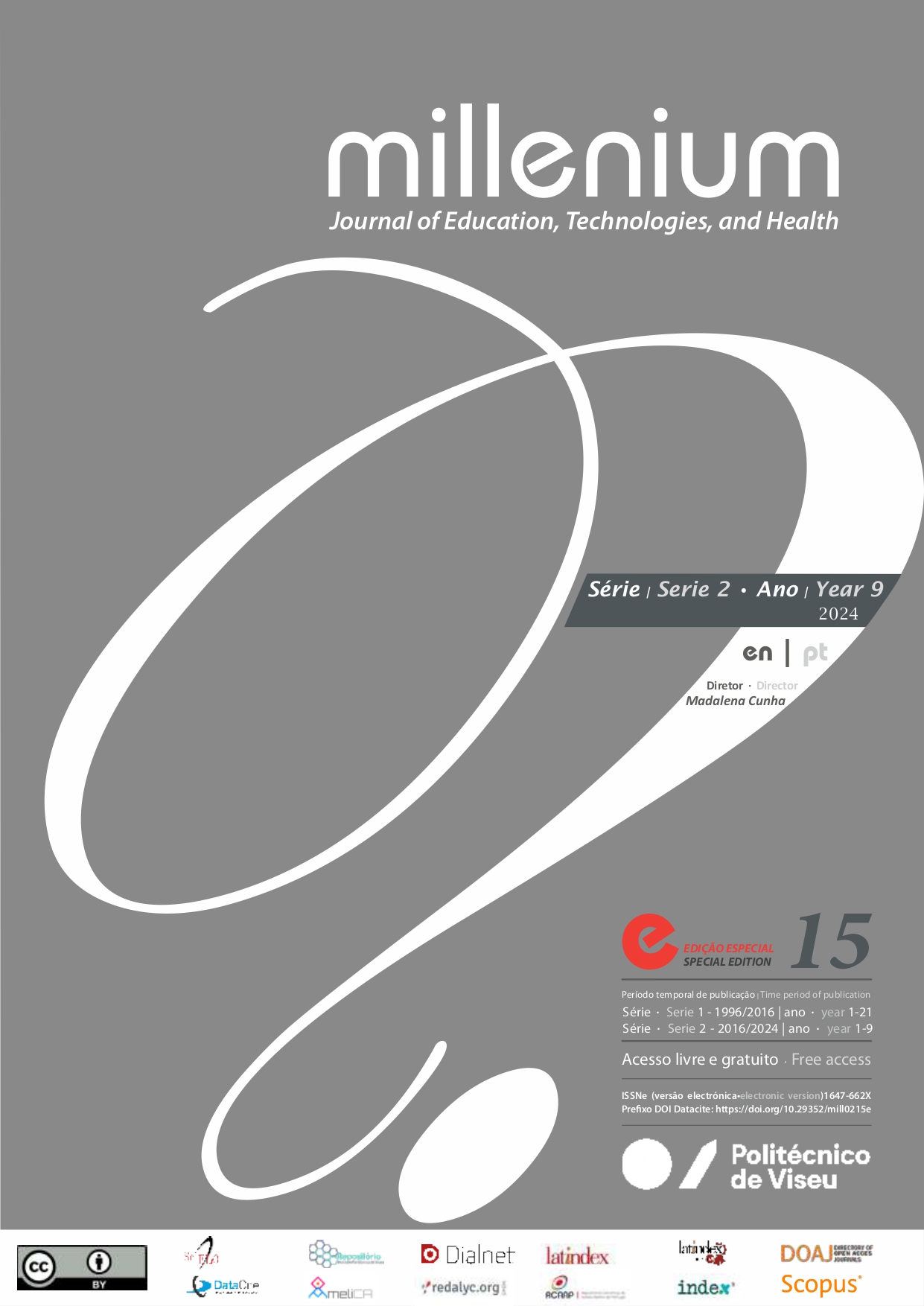Implementation of bio-waste selective collection: the determining descriptors in the Association of the Municipalities of the Region of Plateau Beirão population (Central Portugal)
DOI:
https://doi.org/10.29352/mill0215e.33776Keywords:
AMRPB; bio-waste; circularity; separate collection; behavioural descriptorsAbstract
Introduction: European municipal waste management policies have underlined the importance of defining and implementing strategies for the separate collection and recovery of bio-waste as an essential pillar of a circular economy. In this sense, the present work was carried out in the Association of Municipalities of the Planalto Beirão Region (AMRPB) to promote the development of solutions that allow the fulfillment of the goals defined by the legislation.
Objective: To analyze the population's knowledge in order to understand their behavior regarding the separation of bio-waste and its determinants.
Methods: The work methodology involved the application of surveys to the study population, which were carried out in person and by email. Statistical analysis was performed using logistic regression of the results, considering a significance level of 5%.
Results: Of the 87 percent of respondents, municipal waste is separated, but of these, only 17.7 percent separate bio-waste. The reasons given for this were lack of convenience, lack of interest, lack of containers and bags, or lack of knowledge. It is, therefore, clear that there is a need to promote awareness-raising actions and provide specific containers and/or bags in order to achieve the legal targets set for bio-waste. The socio-demographic variables that have been shown to influence bio-waste separation behavior positively are gender, age, education, and type of dwelling.
Conclusion: The AMRPB should implement strategies to increase the separation of bio-waste, considering the sociodemographic variables that indicate a positive influence on the behavior of bio-waste separation, such as gender, age group, level of education, and type of housing. Therefore, the AMRPB should implement strategies to increase the separation of bio-waste, targeting the male and young population with a lower level of education and who live in more densely populated areas.
Downloads
References
Agência Portuguesa do Ambiente (2021). Plano Estratégico para os Resíduos Urbanos (PERSU). Agência Portuguesa do Ambiente. https://apambiente.pt/residuos/plano-estrategico-para-os-residuos-urbanos-persu
Agência Portuguesa do Ambiente (2022). Relatório Anual Resíduos Urbanos 2021. Agência Portuguesa do Ambiente. https://abrir.link/JcPyN
Bernad-Beltrán, D., Simó, A., & Bovea, M. D. (2014). Attitude towards the incorporation of the selective collection of biowaste in a municipal solid waste management system. A case study. Waste Management (New York, N.Y.), 34(12), 2434–2444. https://doi.org/10.1016/j.wasman.2014.08.023
Bucholtz, I. (2017). Environmental communication in Latvian Municipal Newsletters. Environment Technology Resources. Proceedings of the International Scientific and Practical Conference. Vol. 1, pp. 46–50. https://doi.org/10.17770/etr2017vol1.2583
Coggins, P.C. (1994). Who is the recycler? Waste Management and Resource Recovery, 11, 69–75.
Entidade Reguladora de Serviços de Água e Resíduos (2021). Relatório Anual dos Serviços de Águas e Resíduos em Portugal: Caraterização Geral do Setor de Águas e Resíduos 2019. ERSAR. https://www.ersar.pt/pt/site-publicacoes/Paginas/edicoes-anuais-do-RASARP.aspx
Ferreira, R. C. P. (2013). Determinantes do comportamento de compra verde em Portugal [Dissertação de mestrado, Instituto Politécnico de Lisboa]. https://repositorio.ipl.pt/bitstream/10400.21/3341/1/Disserta%C3%A7%C3%A3o%20-%20Rodrigo%20Ferreira%206996.pdf
Instituto Nacional de Estatística (2021). Divisão administrativa. Instituto Nacional de Estatística. https://www.ine.pt/xportal/xmain?xpid=INE&xpgid=ine_cont_inst&INST=6251013&xlang=pt
Jacobs, H., Bailey, J., & Crews, J. (1984). Development and analysis of a community-based resource recovery program. Journal of Applied Behaviour Analysis, 17, 127–145. https://doi.org/10.1901/jaba.1984.17-127
Kaza, S., Yao, L. C., Bhada-Tata, P., & Van Woerden, F. (2018). What a Waste 2.0: A Global Snapshot of Solid Waste Management to 2050. Urban Development. World Bank. http://hdl.handle.net/10986/30317
Knickmeyer, D. (2020). Social factors influencing household waste separation: A literature review on good practices to improve the recycling performance of urban areas. Journal of Cleaner Production, 245, 1-18. https://doi.org/10.1016/j.jclepro.2019.118605
Marôco, J. (2021). Análise Estatística com o SPSS Statistics (8ª ed.). Edições Sílabo.
McDonald, S., & Ball, R. (1998). Public participation in plastics recycling schemes. Resources, Conservation & Recycling, 22, 123–141. https://doi.org/10.1016/S0921-3449(97)00044-X
Owens, J., Dickerson, S., & Macintosh, D. (2000). Demographic covariates of residential recycling efficiency. Environment and Behaviour, 32, 637–650. https://doi.org/10.1177/001391600219727
Scott, D. (1999). Equal opportunity, unequal results: determinants of household recycling intensity. Environment and Behaviour, 31, 267–290. https://doi.org/10.1177/00139169921972100
Downloads
Published
How to Cite
Issue
Section
License
Copyright (c) 2024 Millenium - Journal of Education, Technologies, and Health

This work is licensed under a Creative Commons Attribution 4.0 International License.
Authors who submit proposals for this journal agree to the following terms:
a) Articles are published under the Licença Creative Commons (CC BY 4.0), in full open-access, without any cost or fees of any kind to the author or the reader;
b) The authors retain copyright and grant the journal right of first publication, allowing the free sharing of work, provided it is correctly attributed the authorship and initial publication in this journal;
c) The authors are permitted to take on additional contracts separately for non-exclusive distribution of the version of the work published in this journal (eg, post it to an institutional repository or as a book), with an acknowledgment of its initial publication in this journal;
d) Authors are permitted and encouraged to publish and distribute their work online (eg, in institutional repositories or on their website) as it can lead to productive exchanges, as well as increase the impact and citation of published work
Documents required for submission
Article template (Editable format)





